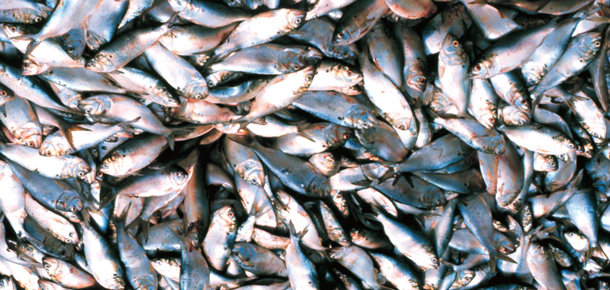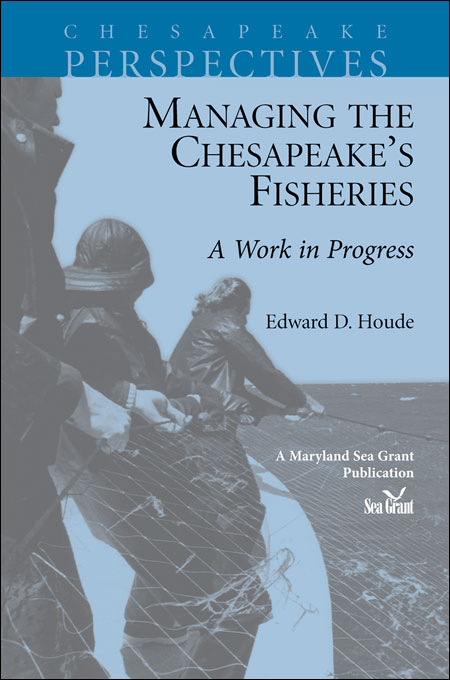Knauss legislative fellowships in Congress help build careers — and they're fun and educational. See our video and fact sheet for details.
Menhaden

Maryland Sea Grant supports research that informs the conservation of menhaden as well as the continued economic success of this and other Bay fisheries.
Key facts about menhaden:
- People don’t eat these oily and bony fish directly. But menhaden (Brevoortia tyrannus) are sought after for their omega-3 fatty acids, the “fish oil” in nutritional supplements.
- They have a variety of other commercial uses, including fish meal, fertilizer, even house paint.
- Menhaden spawn in the Atlantic Ocean, then migrate to the Chesapeake where they live as adults.They’re a vital component of the Chesapeake ecosystem because menhaden are the most important food source for striped bass.
To discover more about the role of menhaden in the Bay food web, read Menhaden: A Test Case for New Fisheries Management, an issue of Chesapeake Quarterly magazine.
Learn about how ecosystem-based fisheries management — management that considers the whole ecosystem, not just single species — can help menhaden and other species.
Photograph, National Oceanic and Atmospheric Administration
View this video that appeared in the October 2011 issue of our magazine Chesapeake Quarterly. The video is used courtesy of Harold Anderson.
Catching Menhaden on the "Hush Puppy"
A small seine boat from the 80-foot-long snapper rig "Hush Puppy" surrounds a school of menhaden. The "Hush Puppy," owned by the Rogers family, fishes out of Reedville, Virginia.






